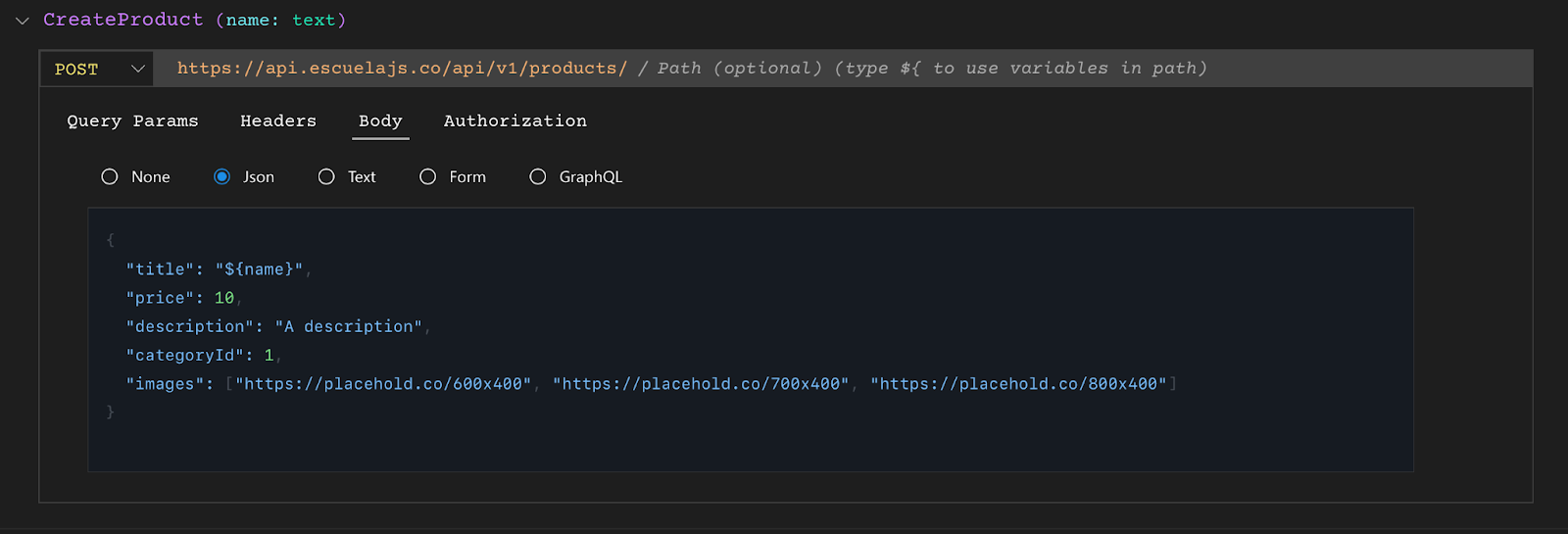Passing Text as Arguments in API Requests
This document outlines a use case demonstrating how to pass text as arguments in API requests. This functionality allows users to dynamically provide data in the request body, enhancing the flexibility and reusability of API tests.
The below example illustrates how to dynamically pass a product name as a text argument in the request body to create a new product using API.


-
Step 1: Call the
FakeStoreAPI > CreateProductendpoint (POST) with a dynamic product name passed as a text argument. Store the API response inapiResponse_1.1. apiResponse_1 = Call API FakeStoreAPI > CreateProduct ( name : wgevdhgedvcghdvecgnvdecnb )- Request Details:
- Method: POST
- URL:
https://api.escuelajs.co/api/v1/products/ - Body: JSON
{
"title": "${name}",
"price": 10,
"description": "A description",
"categoryId": 1,
"images": [
"[https://placehold.co/600x400](https://placehold.co/600x400)",
"[https://placehold.co/700x400](https://placehold.co/700x400)",
"[https://placehold.co/800x400](https://placehold.co/800x400)"
]
} - Note: The
${name}placeholder in the JSON body is dynamically replaced with the text argumentwgevdhgedvcghdvecgnvdecnb.
- Request Details:
-
Step 2: Verify that the HTTP response status code of
apiResponse_1is 201 (Created).2. Verify status code of http response apiResponse_1 == 201